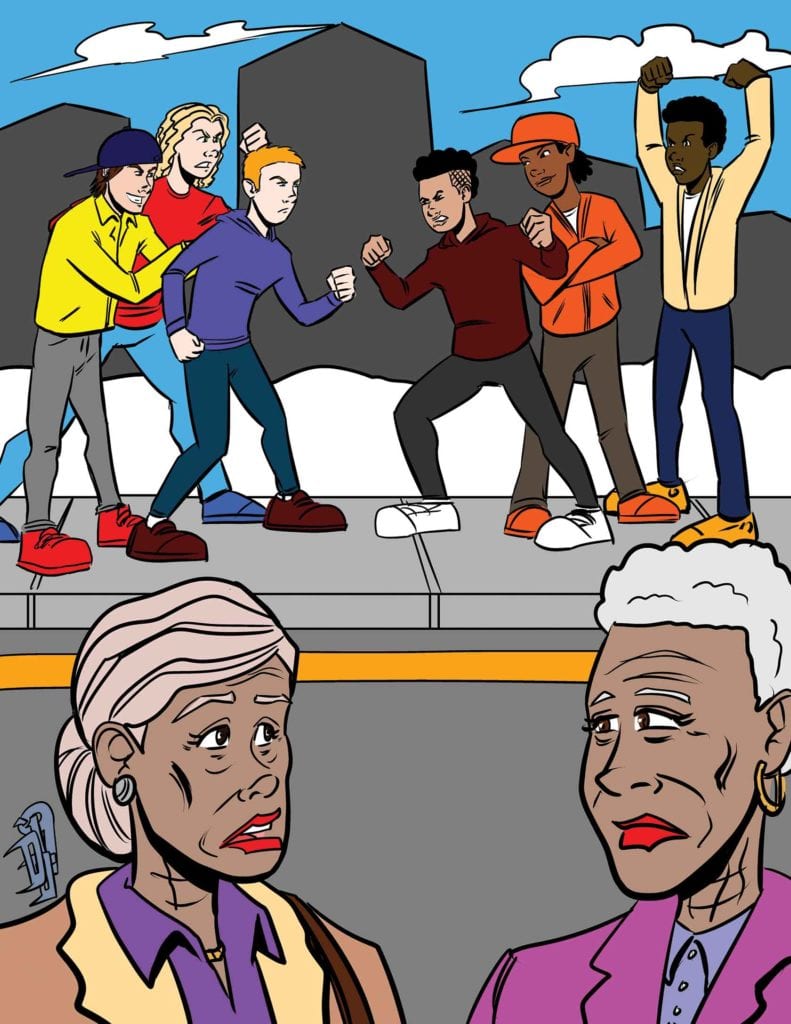
A young American missionary decided last November to take Christianity to the primitive inhabitants of the North Sentinel Island in the Andaman Sea near India. The islanders live in aboriginal isolation and are known to murder trespassers. Nonetheless, young John Allen Chau decided that no one should be denied the opportunity to come to Jesus, so he assumed the risk of violating their isolation, and he was summarily murdered. This incident provides an important message for the so-called civilized world where discrimination can also be fatal.
This is an extreme case of the proclivity of people to divide themselves into two groups — us or others. The primary analysis is based on color (races), religion, or place of birth. Those who are considered to be one of “us” must have the same race and an acceptable religion and nationality. Then there are other qualifying considerations such as level of education, income and place of residence, even down to zip code.
It is not practical or even desirable for the more civilized to eliminate those who are the “others” as did the aboriginals on North Sentinel Island, but racial and religious discrimination can be ultimately just as fatal. In a free enterprise society such as the U.S., those in the most desirable group end up owning a greatly disproportionate share of the wealth while the “other” group has to struggle for survival. This arrangement has worked in the past because of a strong belief in the ability to realize the American Dream.
Economic disparity aside, those branded as “the other” are forced to suffer indignities and discrimination. One would think that such experience would induce them to be compassionate to other victims of discrimination, but that is not always the case. The power to heap scorn on others in the public square is viewed by some as an indication of higher status. It is a major challenge for those who adhere to the concept of racial equality to maintain their humanity.
In Boston the ancestors of African Americans and the Irish have endured such severe hardships that their descendants should be close allies. The 1800 U.S. census recorded 893,602 slaves in America. After the 13th Amendment made slavery illegal, some blacks moved to Boston which was considered to be a more accommodating environment than the former Confederate states.
During that period the Irish had to cope with a different tragedy. The potato blight between 1845 and 1849 destroyed the basic food crop of the tenant farmers. However, the oats and barley were unharmed. These were the cash crops for export and were not generally available to relieve the famine of the tenant farmers. Consequently there was massive immigration to the U.S. from Ireland during the latter half
of the 19th century.
The Irish immigrants were not well received by Boston’s power structure. However, relations with African Americans were congenial. In fact Robert Morris, the nation’s first black certified attorney, represented numerous Irish clients in legal matters. However, the dynamic growth of Boston’s Irish population over the years provided their dominance at the polls.
Despite periodic conflicts, it is far better to reflect on the human commonality between blacks and the Irish rather than revert to the antagonistic mindset that prevailed on North Sentinel Island.


![Banner [Virtual] Art Gallery](https://baystatebanner.com/wp-content/uploads/2024/04/Cagen-Luse_Men-at-store-e1713991226112-150x150.jpg)



